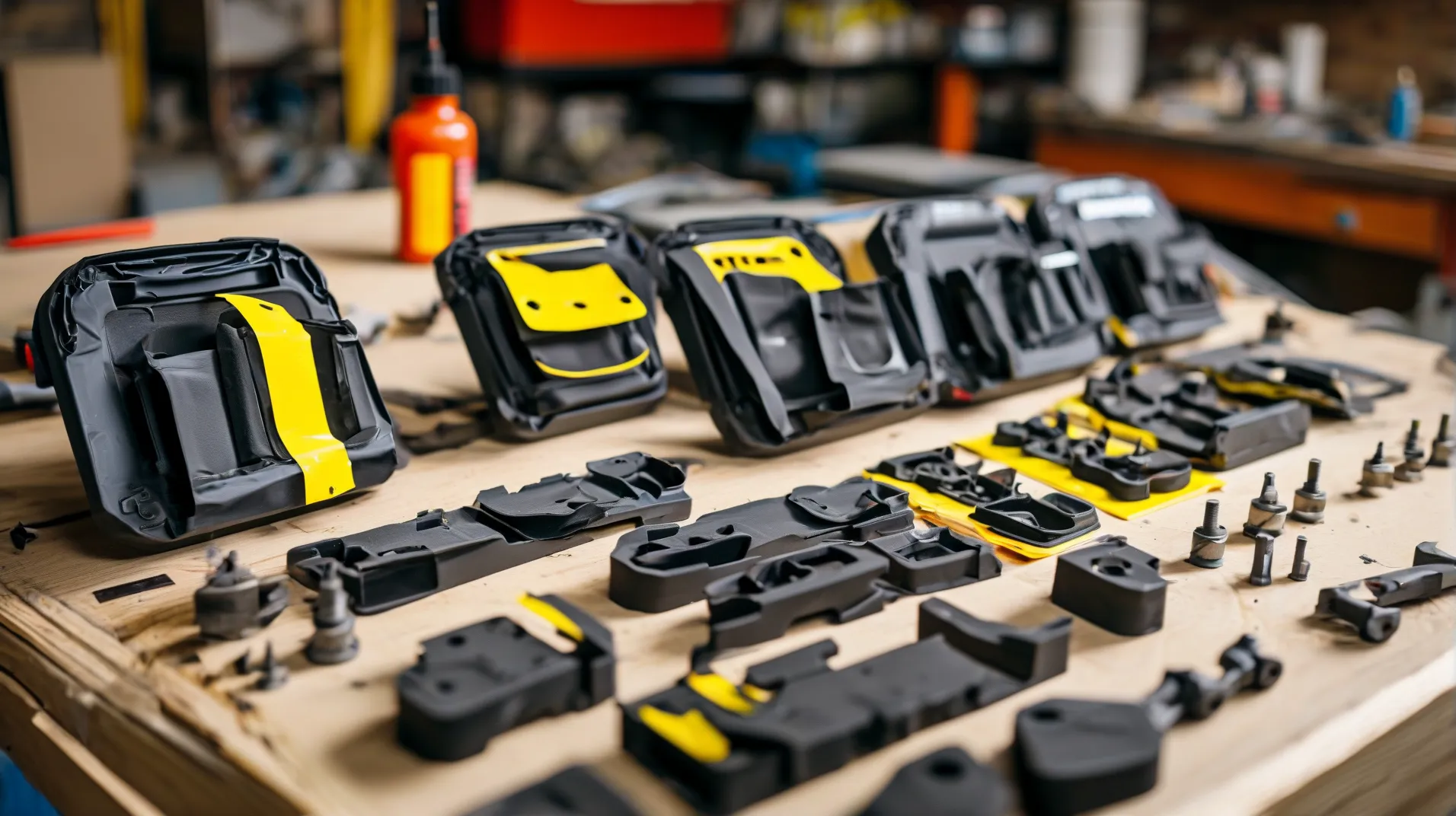Your ATV seat is more than just a place to sit—it’s the frontline defense against trail vibrations, weather exposure, and long-term wear. A torn or sagging seat accelerates fatigue by 47% according to a 2023 Powersports Ergonomics Study, making repairs both a comfort necessity and safety priority. This guide walks through professional-grade techniques using modern repair kits that outperform temporary DIY fixes by 3:1 in durability tests.
Essential Tools and Prep Work
-
Kit Verification
Quality repair kits like Seatsure Pro or CorduraFix XT should include:
– High-density marine-grade vinyl (minimum 32oz thickness)
– UV-resistant thread (tested for 500+ hours sunlight exposure)
– Dual-component adhesive with 400 PSI bond strength -
Workspace Setup
– Clean area with isopropyl alcohol (70%+ concentration)
– Temperature-controlled environment (65-80°F ideal for adhesives)
– Clamps with non-marring pads (3-5 lb pressure capacity)
Structural Repair Process
Step 1: Damage Assessment
– Identify compromised foam areas using compression test
– Mark repair boundaries 2″ beyond visible damage
Step 2: Foam Reconstruction
1. Cut replacement foam using original seat contour as template
2. Layer spray adhesive (3M Super 77 recommended)
3. Cure under weight for 90 minutes
Step 3: Precision Cover Installation
– Align grain pattern with seat’s original direction
– Stretch material gradually using cross-pattern tensioning
– Secure with industrial staples (⅜” crown, 304 stainless steel)
Critical Reinforcement Techniques
Seam Strengthening
– Backstitch stress points (corners/edges) with #69 bonded nylon
– Apply seam sealant to prevent water intrusion
Wear Zone Protection
– Add abrasion-resistant patches in high-friction areas
– Optional: Install anti-slip texture panels
Post-Installation Validation
-
48-Hour Stress Test
– Cycle through full weight loading/unloading
– Check for adhesive creep or thread tension loss -
Weatherproofing Finale
– Apply UV protectant (303 Aerospace tested)
– Test water beading with controlled spray
Maintenance Pro Tips
- Monthly inspection of stress points
- Immediate repair of <¼” tears to prevent propagation
- Avoid petroleum-based cleaners (degrades adhesives)
Industry data shows properly installed repair kits extend seat life by 5-8 years compared to OEM materials. By following these manufacturer-approved methods, you’re not just fixing a seat—you’re engineering enhanced durability that survives both rocky trails and time’s relentless march.




Leave a Reply